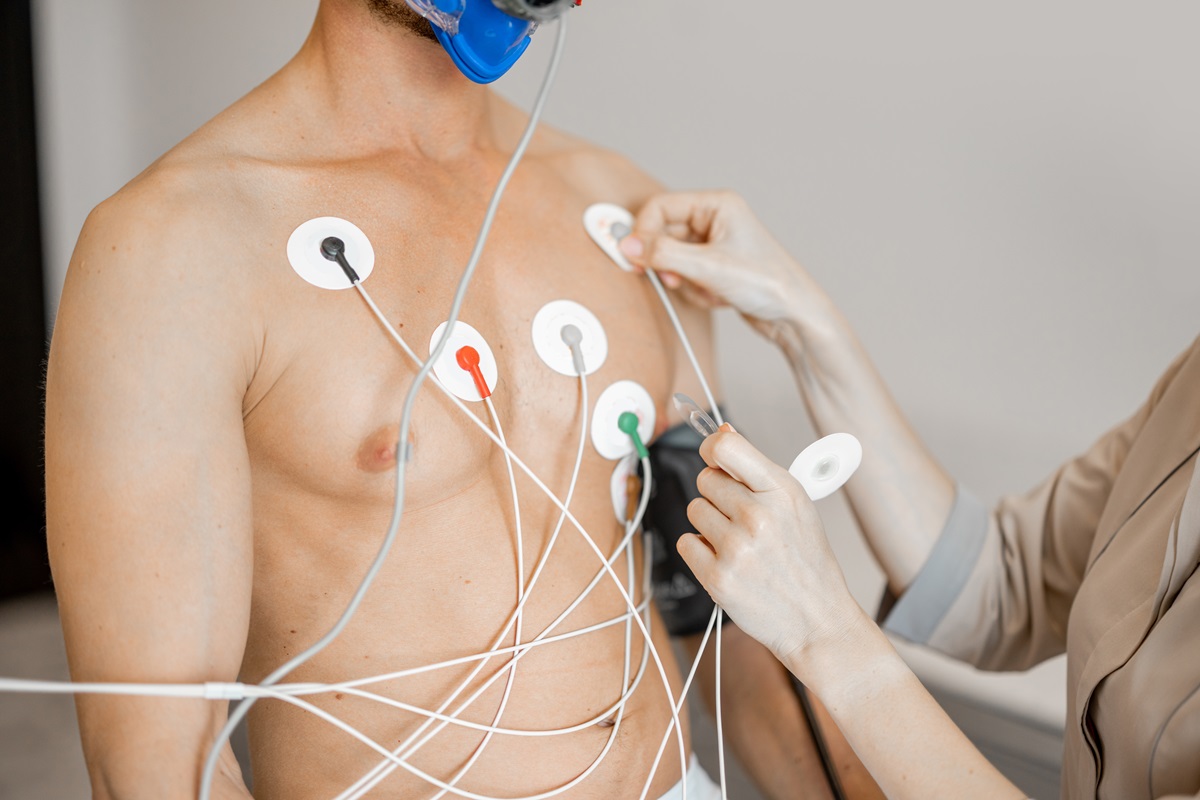Promo!
Special Offer: Upto 30% Off on Lab Services and Pharmacy (Home delivery)

Holter Monitoring is a portable device that continuously records your ECG (electrocardiogram) over an extended period—typically 24 to 48 hours. This test is invaluable for detecting abnormal heart rhythms, also known as arrhythmias, which may not appear during a standard, short-duration ECG test. It allows our cardiologists to monitor heart activity during regular daily activities, including exercise, sleep, and stress, offering a more complete picture of heart health.
During the test, small electrodes are attached to your chest and connected to a small, portable recorder. The recorder continuously monitors and records the electrical signals of your heart, which will later be analyzed by our experts.
Expert Cardiologists: At Pranayam Cardiac Clinic, our cardiologists are highly trained in interpreting Holter Monitor results, ensuring accurate diagnosis and effective treatment plans based on your heart health data.
Comprehensive Heart Health Evaluation: Holter Monitoring offers continuous 24-hour or 48-hour insights into your heart’s electrical activity. It’s ideal for diagnosing arrhythmias, unexplained heart palpitations, or fainting episodes, helping to detect heart issues that may go unnoticed in a routine ECG.
State-of-the-Art Technology: We use the latest Holter monitoring devices to ensure the most accurate and reliable results, enabling precise diagnostics for a range of heart conditions.
Non-Invasive and Comfortable: Unlike more invasive tests, Holter Monitoring is entirely non-invasive, with no needles or incisions required. The process is comfortable and allows you to go about your daily routine while your heart is being monitored.
Effective for Unexplained Symptoms: If you are experiencing symptoms like dizziness, fainting, chest pain, or irregular heartbeats, Holter Monitoring is highly effective for detecting intermittent issues that might not be captured during a brief ECG test.
Holter Monitoring is particularly useful for diagnosing a variety of heart conditions, including:
Arrhythmias (Irregular Heartbeats): The test can identify irregular heart rhythms that may cause symptoms like palpitations, dizziness, or fainting.
Atrial Fibrillation (AFib): Holter Monitoring is essential for diagnosing AFib, a common type of arrhythmia that can lead to stroke if left untreated.
Ventricular Arrhythmias: The test can detect abnormal heartbeats originating from the lower chambers of the heart, which may pose a serious risk if left unaddressed.
Bradycardia: It helps detect bradycardia, a condition in which the heart beats too slowly, causing dizziness, fatigue, or fainting.
Tachycardia: Holter Monitoring can detect tachycardia, a condition where the heart beats too fast, leading to palpitations, shortness of breath, and chest pain.
Unexplained Fainting (Syncope): If you experience unexplained fainting episodes, Holter Monitoring can help identify heart-related causes that may not be evident in standard tests.
Assessment of Treatment Effectiveness: It is also useful in assessing the effectiveness of treatments for arrhythmias, allowing our cardiologists to adjust medications or interventions based on your heart’s behavior over an extended period.
Here’s what to expect during your Holter Monitoring procedure at Pranayam Cardiac Clinic:
Preparation: There is minimal preparation required for Holter Monitoring. You may be asked to wear loose, comfortable clothing to ensure easy access to your chest. It’s recommended to avoid lotions, powders, or oils on the skin where the electrodes will be placed.
Test Procedure: Small, adhesive electrodes will be attached to your chest, and these will be connected to a small, portable device that records your heart’s electrical activity. The device is lightweight and can be worn on a strap around your waist or carried in a small pouch.
Monitoring Duration: The Holter monitor will continuously record your heart’s activity for 24 to 48 hours. During this time, you can continue your normal activities, but you’ll be asked to keep track of your symptoms and any activities that might affect your heart rate (e.g., exercise, stress).
Post-Test: After the monitoring period, you will return to the clinic to have the electrodes removed. Our team will download and analyze the data collected by the device to assess your heart’s electrical patterns.
Results: Once the data is analyzed, our cardiologists will provide a detailed report of the findings. If any abnormalities are detected, we will recommend the best course of action, which may include further testing, medications, or lifestyle changes.
Comprehensive Monitoring: Holter Monitoring offers continuous, 24-hour or 48-hour monitoring, which allows for the detection of irregularities in heart rhythms that may not appear during a short ECG test.
Non-Invasive: The test is completely non-invasive, meaning no needles, blood draws, or invasive procedures are required. It’s safe and comfortable for patients of all ages.
Accurate Diagnosis: Continuous monitoring ensures a thorough diagnosis of heart conditions that might be missed in a routine check-up, providing a more accurate assessment of your heart health.
Personalized Treatment: Based on the findings of the Holter Monitor, our cardiologists can recommend personalized treatment plans, which may include medication adjustments, lifestyle changes, or further testing to manage your heart condition effectively.
If you are experiencing symptoms such as irregular heartbeats, palpitations, dizziness, or fainting, or if you need a comprehensive heart rhythm evaluation, Pranayam Cardiac Clinic in Pimple Saudagar, PCMC, is here to help. Holter Monitoring provides valuable insights into your heart’s function and can help diagnose underlying conditions that require prompt attention.
For expert cardiac diagnostics and Holter Monitoring, Pranayam Cardiac Clinic is your trusted healthcare provider in Pimple Saudagar, PCMC. Call us today to schedule your Holter Monitoring test or to learn more about our cardiac services.

8600209494 9028898494